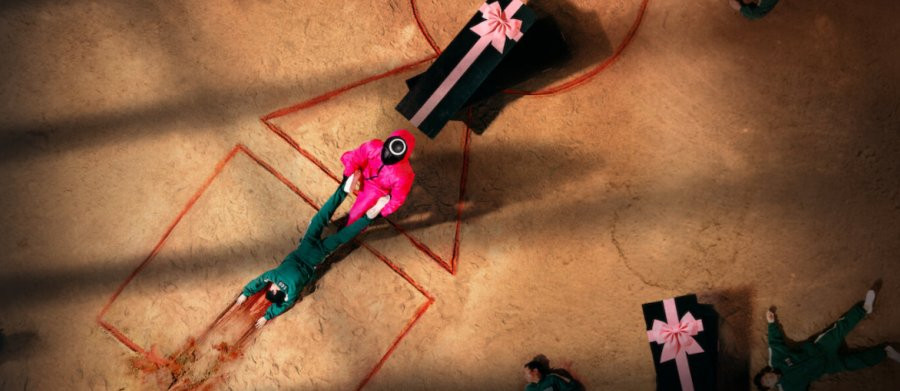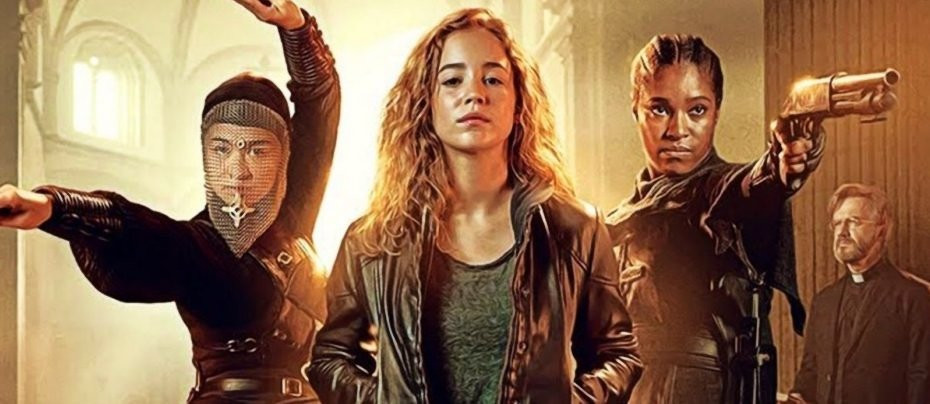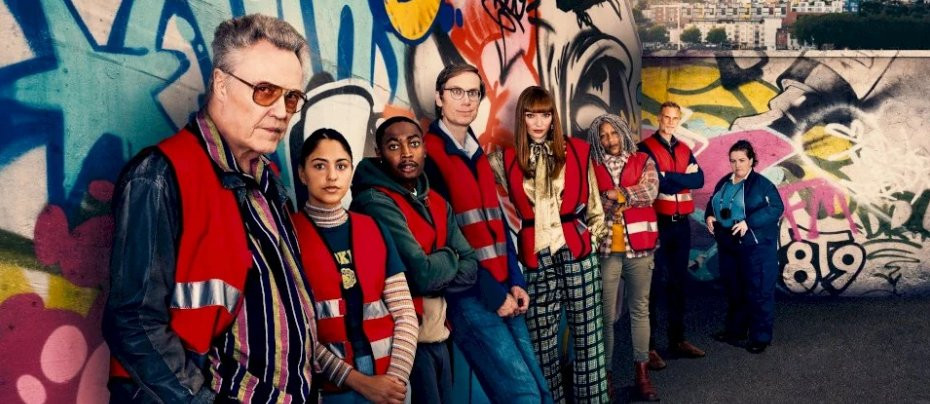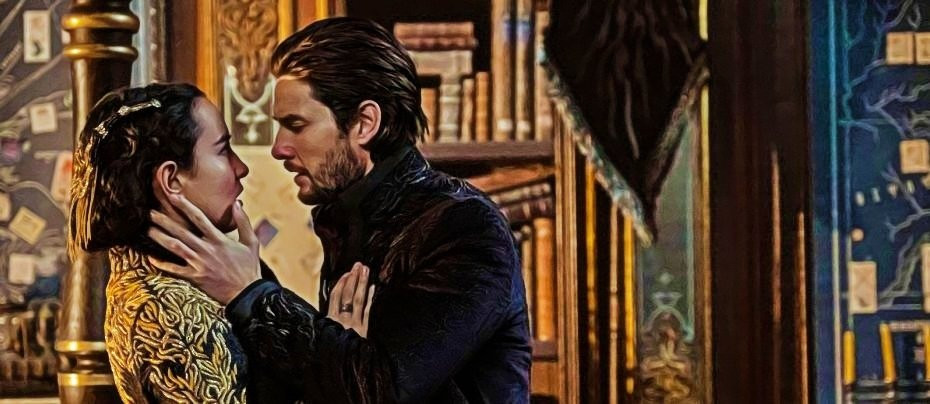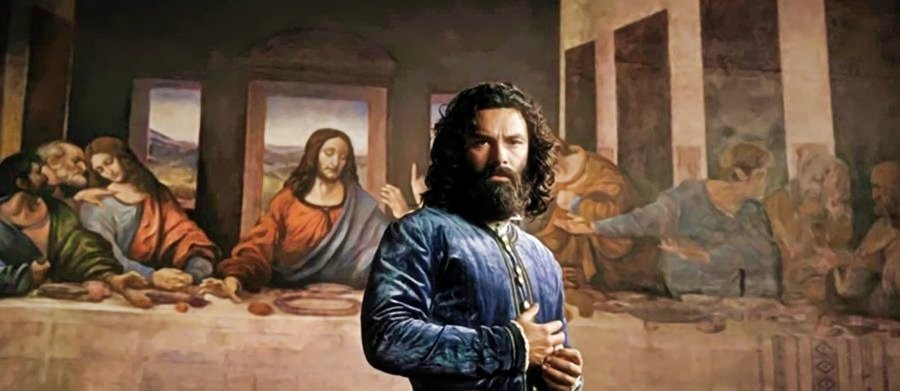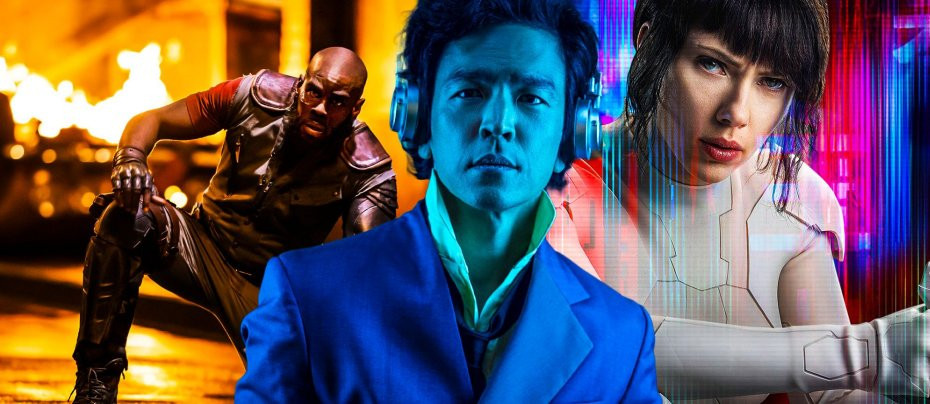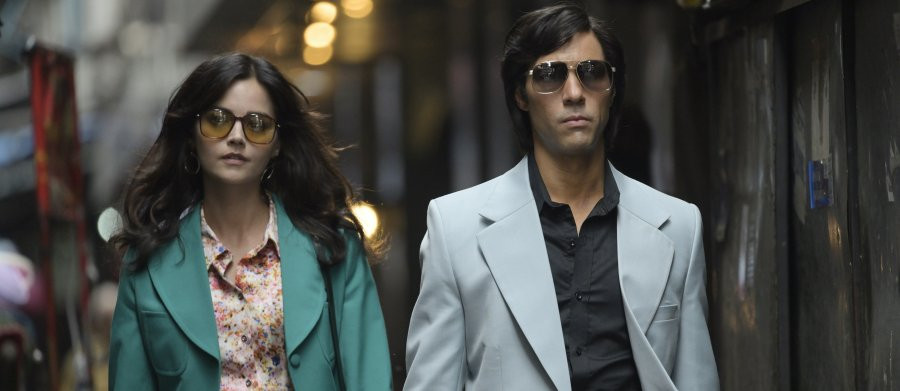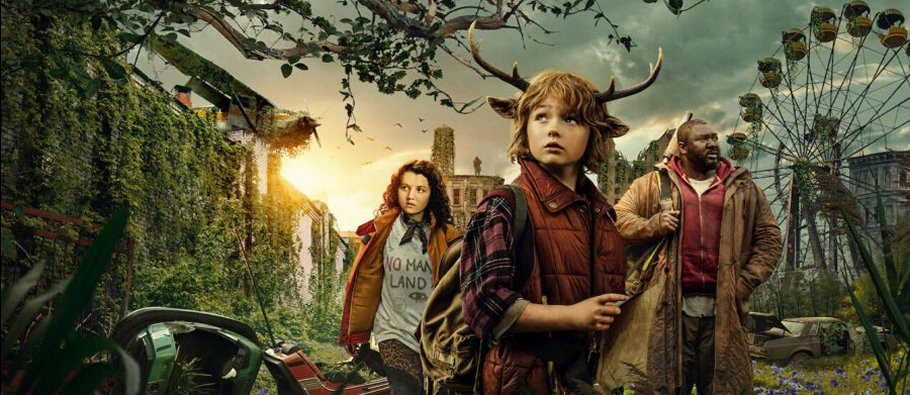
Sweet Tooth
2021 - United StatesA show about a child who is part deer, complete with antlers and twitchy deer ears, is not meant to be taken too seriously. In case we forget that, Sweet Tooth reminds us with the introduction of other children in animal make-up of varying degrees of absurdity, and, if we still have not got the message, with an animatronic groundhog who looks as if he has come straight out of Caddyshack.
The reminders are necessary because it is all too easy to find oneself investing emotionally in Sweet Tooth and its characters. They have more humanity - a major theme - and more heart than most of the contrived characterisations in supposedly more prestigious drama these days. This is the secret of the success of this cheaply produced "Post-Apocalyptic" drama based on a fairly obscure "comic book" series. At the same time, the bleakness of its subject matter keeps it from lapsing into sentimentality.
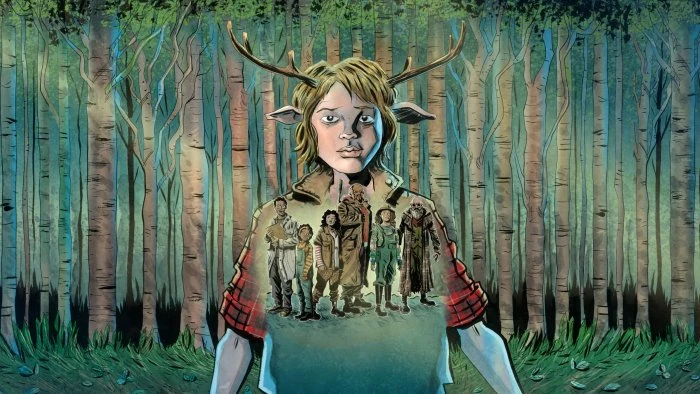
This is a spoiler light, not spoiler free, overview of the first season. The story begins, topically, with a pandemic - the series was actually filmed by special permission in New Zealand when that nation was practically isolated in response to the coronavirus. In this case, the pandemic, known as "the Sick," is on a Black Death level. There is no cure. People panic. At first there is some attempt to treat the infected, but later they are simply killed and burnt, not necessarily in that order. So are "hybrids," human children with animal characteristics, who begin to appear around the same time and are therefore blamed - without any evidence - for spreading "the Sick." Some are used in medical experiments first.
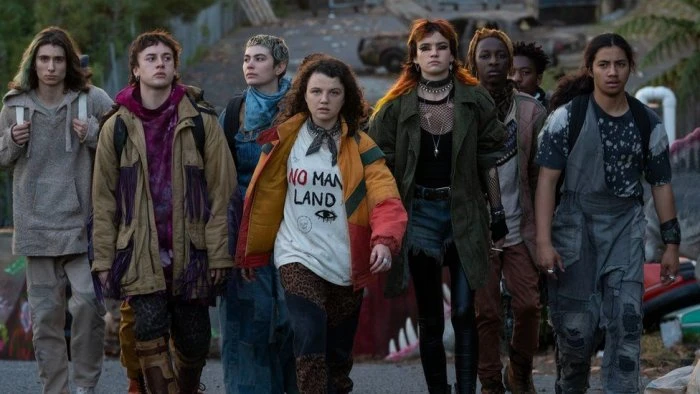
This is dark stuff, not least because it seems all too credible. So is the way that this leads to "the Great Crumble," a total collapse of the economy, government, organised society, and - horror of horrors - the internet. Most of the events in the drama take place about a decade after "the Great Crumble." By this stage, a basic level of order has been imposed by the self-appointed General Abbot and his army of "Last Men," but anarchy prevails in most places, and all live in fear of a new wave of "the Sick."

The first season adopts the fashionable structure of starting with several separate strands or plotlines which are obviously destined to interweave as the story unfolds. The main one, centred on our deer boy, Gus (Christian Convery), begins as the tale of a caring father who decides to protect his son by taking him out into the wilderness of Yellowstone to live in solitude, safe from prejudice against "hybrids" and from the effects of "the Great Crumble." At least that is the tale we are given - at first. Things are not necessarily as they seem in Sweet Tooth.
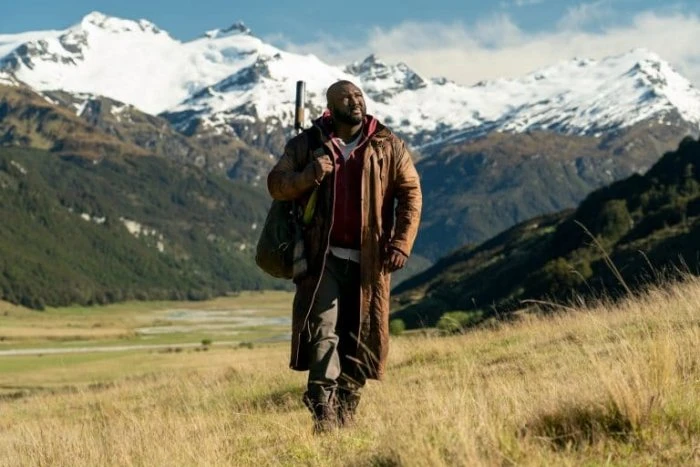
At around the age of ten, and poorly prepared, Gus finds himself alone. Almost killed by hunters, he is rescued by a man harder than they are, Jepperd (Nonso Anozie). Having done so, the last thing the wanderer Jepperd wants to do is hang out with a child. However, we all know what happens when a gruff loner wants nothing to do with a cute kid. Gus is a charmer. As well as the vulnerability of an innocent child, he has the appeal of an innocent animal - Bambi no less. His animatronic ears alone would make anyone feel protective. They have a life of their own.

Jepperd's unwanted family is later increased by the addition of Bear (Stefania LaVie Owen), the unlikely leader of a very unlikely community of teenaged "hybrid" rights militants, the Animal Army. Without visible means of support, the Animal Army are shown living a very agreeable lifestyle in the middle of nowhere, taking on "Last Men" successfully because they, er, "train" a lot on video games. This is pandering shamelessly to the "young adult" market and actually manages to detract from the credibility of a show whose principal protagonist is half deer.
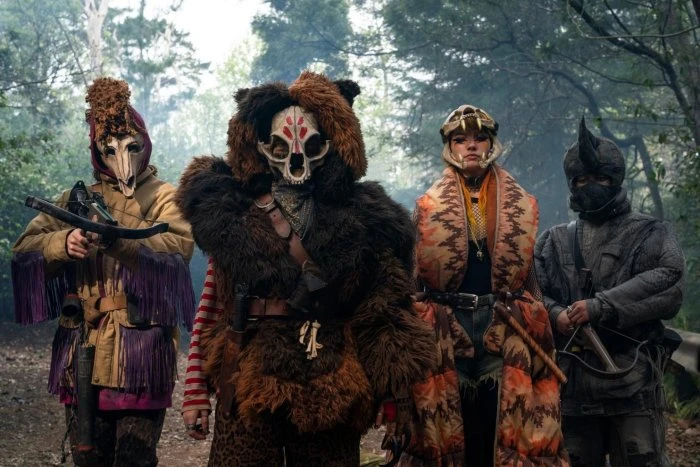
Talking of unsought families, in another thread, a jaded therapist called Aimee (Dania Ramirez) has embraced the opportunity of "the Great Crumble" to give up her superficial lifestyle. She enjoys a more authentic life, happily alone in an abandoned zoo, until a "hybrid" is literally left on her doorstep. Others follow, including Bobby, the delightful remote controlled puppet groundhog who steals the whole show. He should be ridiculous but when one of the very few words he utters is "scared" it is impossible not to care for him and hope that he will be all right. We have been manipulated shamelessly and we know it - and we are fine with it by this point.
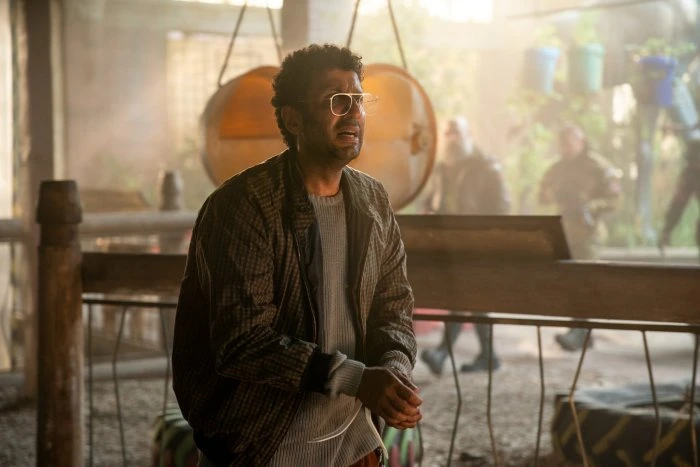
The theme of family takes a different turn in the third thread. Dr Aditya Singh (Adeel Akhtar) is faced with an impossible moral choice: experiment on "hybrid" children or lose the woman he loves. It has to be said that the woman in question, his wife, Rani (Aliza Vellani), becomes a lot less loveable when she is the one urging him to become Dr Mengele, but it is the nature of family to prioritise itself over outsiders. It could in theory be argued that the experiments sacrifice a few for the sake of the many if they result in a cure for "the Sick," but we are already looking at the situation from the point of the few, the "hybrids." If there is any doubt in the matter, a brief shot of a "hybrid" child about to be dissected should settle it. Once again, Sweet Tooth is not afraid to go to some very dark places.
In other respects, it pulls its punches. As usual, "Post-Apocalyptic" is heavily sanitised for television. Indeed, there is an unwillingness to engage with what "Apocalyptic" really means. We have seen the severe disruption caused by the pandemic of 2020, which, viewed with cold objectivity, increased the natural death rate by only about 0.1% of the population in most places with reasonable healthcare. We have also seen a breakdown of civilisation in a modern city in the aftermath of Hurricane Katrina. From there, it is not difficult to extrapolate what mass fatalities, resulting in a total collapse of supply chains, public services, government, law and order, communications, and the power grid, might mean in practice.
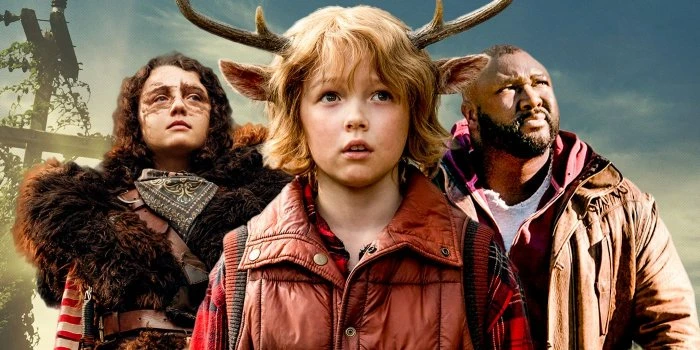
Gus and Aimee and the Animal Army would not have been left alone to enjoy their idyllic lifestyles. Most people keep enough food only for a few days in their homes and most shops use "just in time" stock management systems. There is therefore little surplus food stored in most Western nations. Within weeks, millions of starving people would be covering every inch of ground, even inaccessible wilderness, in a desperate search for something to eat. In the absence of functioning authority, they would steal and kill to survive. Wildlife would be hunted practically to extinction. Cannibalism would be the norm within months. Some might survive long enough to plant some crops and defend them until harvest, but they would be few in number and their ability to do so would be another matter. Those who succeeded would most likely be people with firearms and absolutely no qualms about using them.
They would not be the sort of people who had any illusions of "protecting" children by withholding information crucial to their survival about the dangers of their situation. Yet that is what practically every adult in Sweet Tooth tries to do, including the hardened Jepperd - with the predictable result that the children get themselves and others into avoidable trouble. This is quite irritating.
Almost as irritating is seeing people like the Singh’s enjoying a "Post-Apocalyptic" lifestyle barely distinguishable from the comfortable suburban existence they had before. While the reality might be too depressing for television (Terry Nation's Survivors is probably as close as it can get without becoming unwatchable), and there is a Stepford underside to the Singhs' enclave, the implication that current "normal" life might continue in such circumstances is almost as ludicrous as the whole Animal Army setup. This matters because a fantasy requires that the non-fantastical elements should be well grounded in order to sell the fantastical elements.
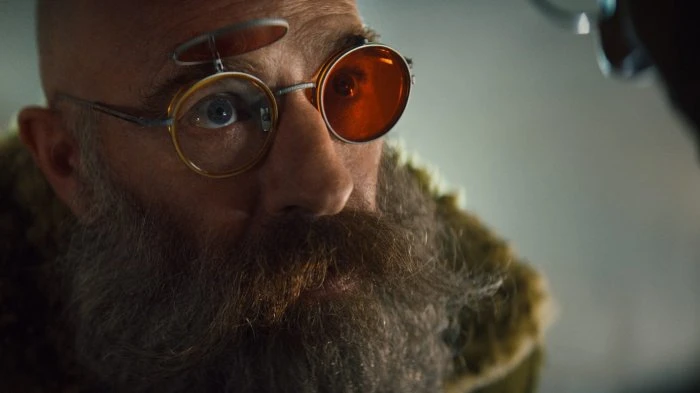
If such enclaves were possible, they would require the protection of an army like Abbot's. Yet Abbot (Neil Sandilands) and his men are portrayed simply as disagreeable villains, as the warlords who would arise in such situations always are in films and television productions. The reality is that people like them would be necessary for the re-establishment of even a basic standard of living in those circumstances. While some might be no more than robber barons, those who realised that it was in their own interests to rebuild a functioning economy and society would prevail over time. Abbot therefore has at least a defensible point of view - perhaps even in his "ends justifies means" attitude to finding a cure for "the Sick" - and it might have been interesting to see that rather than reduce him to a caricature Bad Guy.
In addition to these conceptual criticisms, Sweet Tooth has weaknesses in other departments. Some of the effects shots are very poor. New Zealand, a beautiful country in its own right, is obviously not Yellowstone or Colorado. Apart from Anozie, the cast has no familiar faces - even if there is a familiar voice in James Brolin's unseen and anonymous narrator.
The last weakness may in fact be a strength. The absence of "stars" makes it easier to see the characters and the whole cast commits completely to their roles. Anozie is a great John Wayne figure, especially when there are hints that, like the best John Wayne characters, Jepperd is by no means an altogether pleasant man, which makes his choosing to do the right thing all the more meaningful. Convery is a delight in what could very easily have been an obnoxious brat role. As it is, his wide eyed wonder at the world is infectious.
They are so likeable that, for all its shortcomings, Sweet Tooth lures us in. Silly as it can be, it is at heart a fairly thought-provoking meditation on the themes of what it is to be human and how part of that is being part of a family, the point being that neither humanity nor family is necessarily what we might assume. The season ends on a cliffhanger, but also with the possibility that what we hope will become an extended family, incorporating Aimee and the "hybrids" that have been in her care, will get together in the next season. It is a great relief at the time of writing that Season Two has now been commissioned.
Season 2
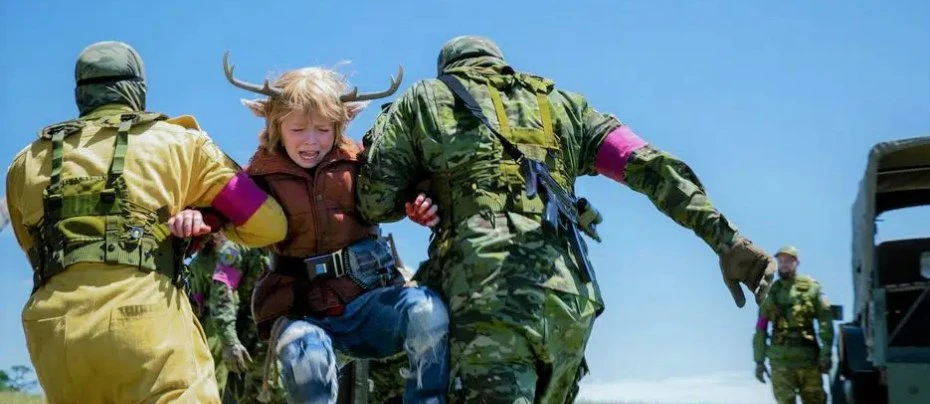
This is all very grim - almost Brothers Grimm - far tougher and more realistic than most recent children's drama
The plot is curiously similar to that of the recent video game adaptation The Last of Us: a hard, brutal man in a hard, brutal Post-Apocalyptic world becomes the reluctant guardian of a special child who may be the key to curing a disease that has brought humanity to the brink of extinction. Like The Last of Us the show poses a difficult moral question: is one individual whom one happens to love more important than the fate of the human race?
While The Last of Us is the more prestigious and expensive production, Sweet Tooth was there two years ahead of it and is arguably the more powerful story because one invests more in its warm hearted characters than one can in the more nihilistic world of The Last of Us.
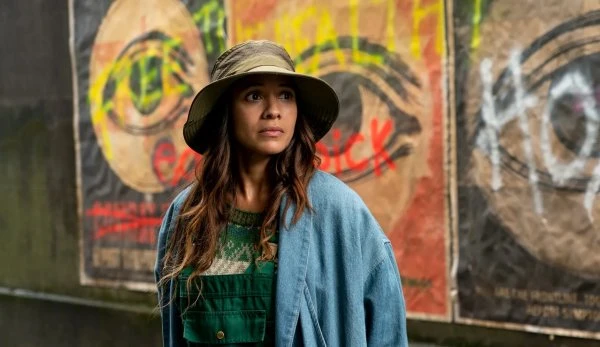
Season Two begins by building on that strength as we begin to find out more about the animal-child "hybrids" rescued and formed into a family by therapist Aimee Eden but who have now been imprisoned in the former zoo that was their home by the wicked "General" Abbot. His thugs' casual vandalism of what was once a secure and loving environment, a literal Garden of Eden, strikes a deliberately jarring note. It feels like a violation.
Until this point Aimee's hybrids have been little more than a plot device. Now we are properly introduced to them as individuals. There is something of a range in their credibility, to put it mildly. Some look like extras in cheaply produced "am dram" while others are wearing fairly advanced prosthetics and the scene stealing groundhog Bobby is an animatronic puppet. Yet it is greatly to the credit of a delightful bunch of child actors that we soon become invested in them as, well, human beings. As the season progresses we get to know more about their different characters and most demonstrate some special ability which is used for the common good.
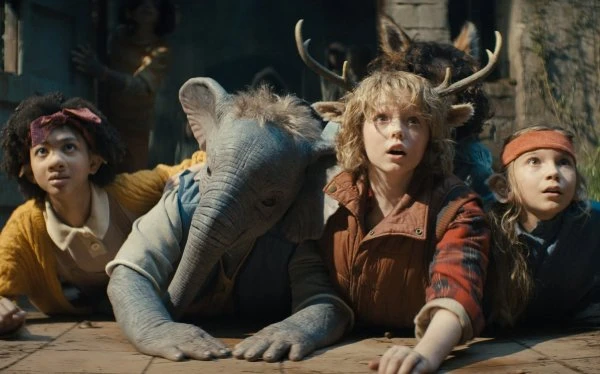
It is all so wholesome that there are times when Sweet Tooth seems more like a children's show, which is how many have categorised it. The writers themselves sometimes seem a bit uncertain of the tone. Yet in the very first episode of the season, just as we are settling in comfortably into what seems like a pleasant family drama, a poignant shot reminds us of a horrifying vivisection towards the end of the previous season. We learn that the child victim had a name, Roy, and that he was a chameleon hybrid, and we see his few personal possessions. An even more horrifying moment soon follows.
They did it. They actually killed the kid. It is one of the unwritten rules of scriptwriting that you never kill the cute child or the cute animal because it puts the viewers off, but Sweet Tooth effectively does both in one with Roy. Nor is he the only talking hybrid with a name to die horribly, and the casual way the deaths are revealed, especially to the other children, adds another level to the horror. Sympathetic adult characters, including a very important one, also die unpleasantly in the course of the season.
The fact that the show has already established the child's point of view in all its innocence makes these moments all the more shocking. The dramatic impact of the nastiness is actually greater than in a supposedly more "adult" show like The Last of Us where we are prepared for it because Sweet Tooth gives us a razor sharp contrast between the children's expectations and the harsh reality of the world in which they live.
It was something of an irritation that in the first season the supposedly responsible adults tried too hard to shield the children from these realities, but this sets up what one assumes is a clever pay off in this season. Gus, our loveable deer-boy hybrid protagonist, copying how the adults in his life acted towards him, tries to hide the full horror of their situation from the other children. Almost inevitably the truth comes out and the mutual trust among the children is broken at a time when it is essential for their survival that they work together.
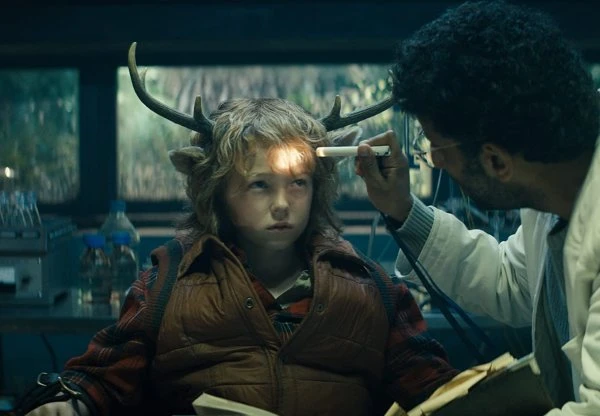
This is all very grim - almost Brothers Grimm - far tougher and more realistic than most recent children's drama, but, like the traditional tales collected by the Grimms, Sweet Tooth performs the basic function that children's stories exist to serve: they prepare children for the dangers of adulthood while they are still in a safe environment. Where most television has abdicated this duty in recent years, Sweet Tooth is not afraid to be cruel to be kind.
Yet, at the same time, Sweet Tooth still downplays the dangers and difficulties, and probably the squalor, of living in the world after an Apocalyptic event like "The Great Crumble." Finding food is never shown as a major issue. In reality, bison would not be happily reclaiming the land: they would more likely have been hunted to extinction in the immediate aftermath of "The Great Crumble." Agriculture, water supply, energy, and fuel are mentioned as concerns, but electricity is shown as working, wheeled transport is being used a lot, and helicopters and large aeroplanes fly around even when not really necessary.
The warlords who are shown establishing such order as there is are just as unrealistic. There would undoubtedly be such people but they would have to be practical leaders capable of persuading others to follow them on the basis of their personal ability alone without legal authority to back them up. One cannot understand why anyone would trust someone like Abbot to lead them. Neil Sandilands invests the character with magnetic presence, and is particularly good in the scenes that tell us something of his family background and life before "The Great Crumble," but Abbot is too much of a pantomime villain to be taken seriously.
There is a not very subtle political subtext to this aspect of the script which will probably not age well. Abbot's mostly white and stereotypically unpleasant "Last Men" are nostalgic for the past before "The Great Crumble" (who would not be in those circumstances?), while their opponents, the "Animal Army" are shown as young "activists" without visible means of support. However, the notion of the Animal Army as a force capable of taking on the Last Men becomes increasingly ludicrous and even the script is eventually forced to acknowledge the reality of that particular contest.
There are also a huge number of holes and conveniences in the plot, and it is very much a product of its time: the production of a vaccine against the killer disease is a major thread, but a new "Doomsday" strain is evolving, clearly influenced by the "Omicron" strain of the coronavirus that was being touted as a big threat around the time Season Two was being made but which is already all but forgotten about a year later.
All that having been said, the story and characters are still very engaging. That there are meaningful stakes on the table strengthens every emotion. The early episodes, set mainly in the zoo, are tense as we wonder if the children will escape or be rescued before another goes to the vivisection table. Which will It be? There is real joy when most of the "family" is finally united and almost everyone we care about is on their way together to what has been presented as an idyllic place of safety. There are some much needed moments of light relief, usually involving Bobby, who is given a couple of witty film references.
Christian Convery continues to charm as Gus, but the season really belongs to Naledi Murray as Wendy, the porcine hybrid who has to lead Aimee's children in her absence. She provides a quietly impressive study of a child being forced to assume responsibilities with which most adults could not cope and gradually becoming more confident in her leadership role. Wendy is the perfect antidote to the current fashion for obnoxious "girl bosses" who start off acting as if they know it all and never develop as characters. She is both more admirable and more believable because of her weakness as child. Christopher Sean Cooper deserves a mention as the shy Teddy Turtle who turns out to have a lot more to him than might at first appear.
The increased emphasis on the children means there is less on the adult principals, Aimee (Dania Ramirez), "Big Man" Jepperd (Nonso Anozie), and Bear (Stefania LaVie Owen), but they all have their moments and the performances are all of a very high calibre. Adeel Akhtar does well with the difficult role of a reluctant Mengele, keeping us unsure for longer than we should be whether we are supposed to feel a smidgen of sympathy for a man who performs such indefensible acts for reasons that may be at least understandable. Aliza Vellani manages to find some redeeming features in the character of his wife, who was even more indefensible than her husband in the first season because her motives were entirely selfish.
Events are set up for a third season, which has apparently been filmed already, so that the emphasis is likely to return to the adults and Gus. Most of the children may have been sidelined because child actors tend to grow faster than their characters in the timeline of a season. As with Stranger Things, there may be a natural limit to how long a show like this can last - even Gus will be less appealing as a teenager. The announcement, while this overview was being written, that the third season will be the last therefore comes as no surprise and it may be a wise decision. Good shows do well to quit while they are ahead and Season Two puts Sweet Tooth in perfect position to do just that. If it can maintain the balance between amiability and edginess as expertly as it has done so far, and if it does not make the mistake of trying to subvert expectations by depriving fans of the happy ending they deserve after all the depressing bits, it has the potential to go down as a minor classic.
Seen this show? How do you rate it?
Seen this show? How do you rate it?
Published on November 21st, 2021. Written by John Winterson Richards for Television Heaven.


